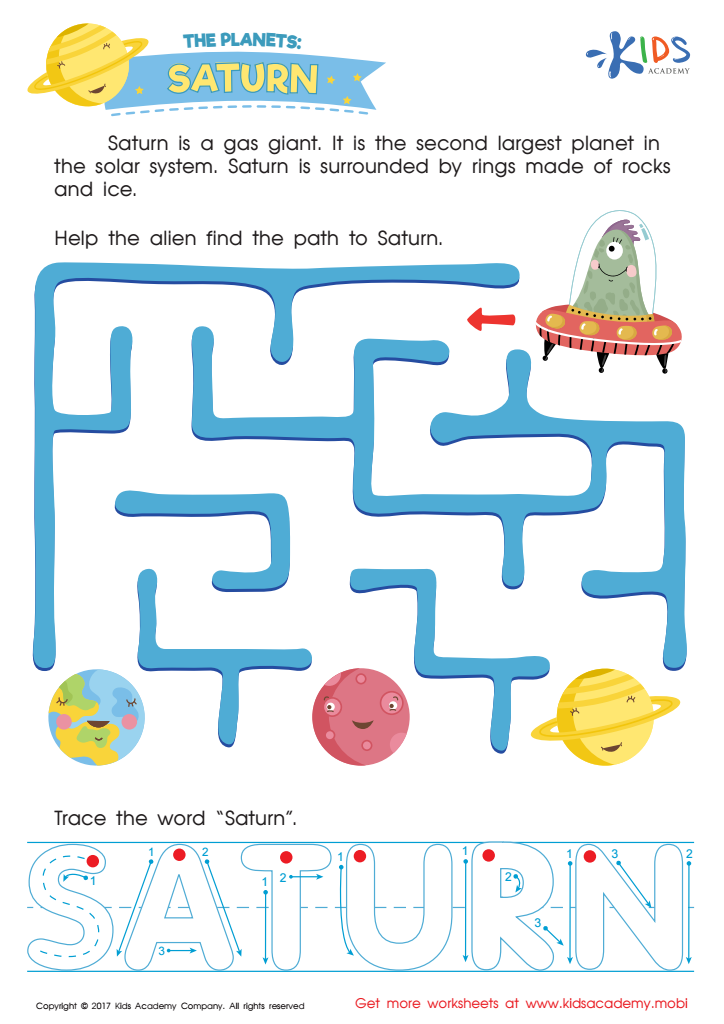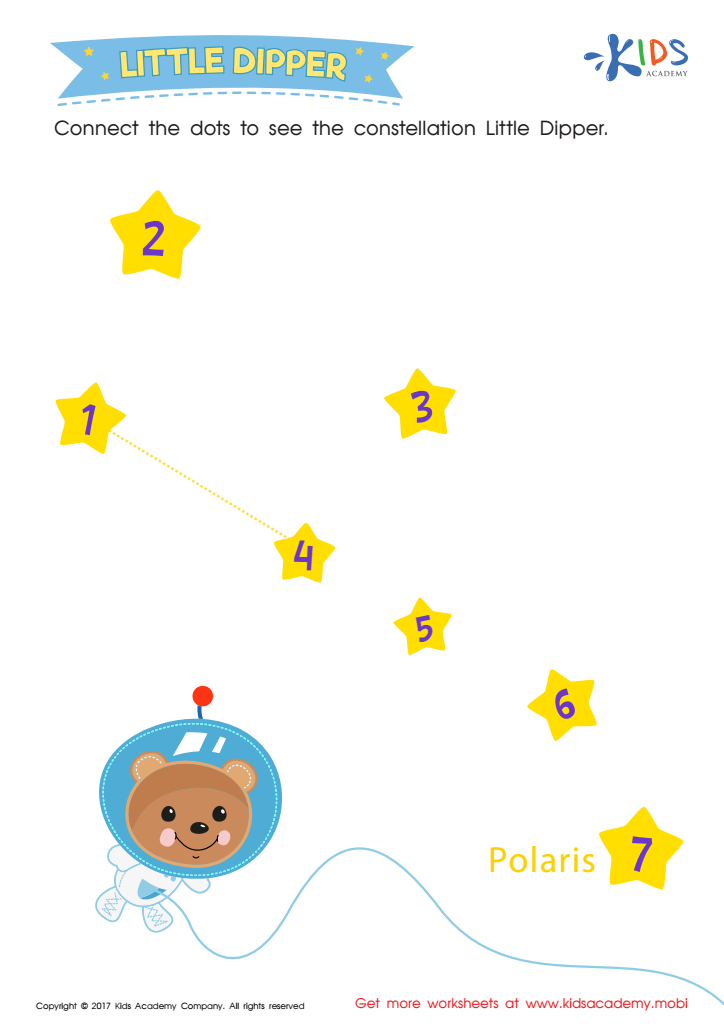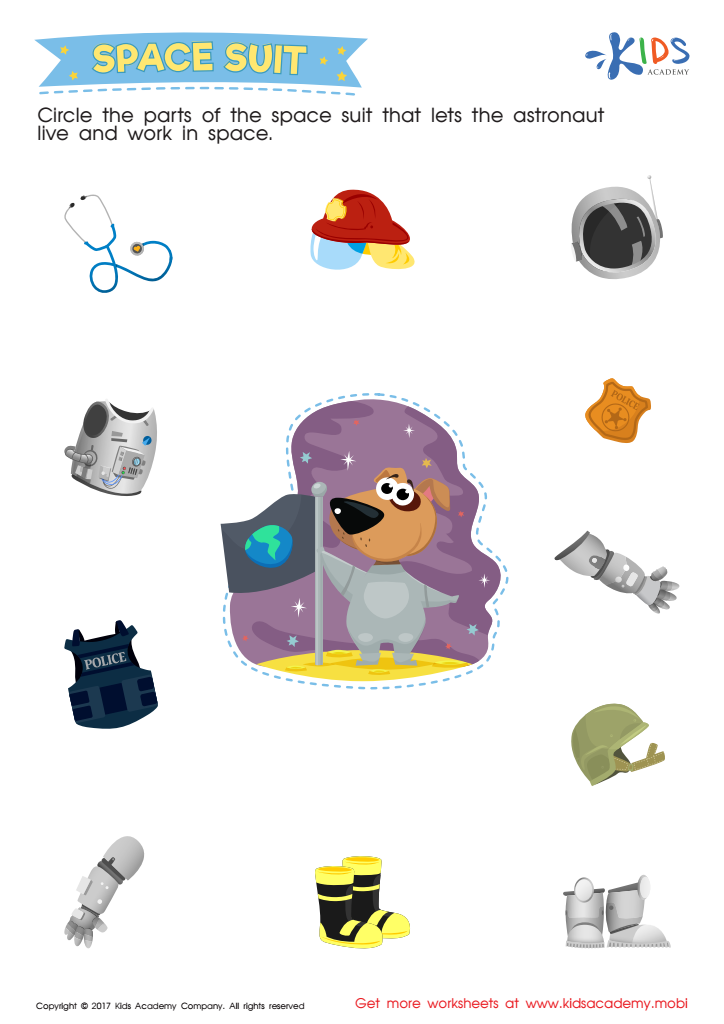Space Worksheets for Ages 6-8
4 filtered results
-
From - To
Explore the wonders of the universe with our "Space Worksheets for Ages 6-8"! These engaging, educational worksheets are designed to inspire curiosity and enhance learning about space. From identifying planets to understanding constellations, our activities blend fun with foundational science concepts suited perfectly for young minds. Each worksheet incorporates colorful visuals and interactive tasks, ensuring a delightful experience while promoting cognitive development and a love for astronomy. Ideal for both classroom settings and at-home practice, our resources are crafted to support educators and parents in guiding children through the fascinating world beyond our planet. Embark on an astronomical adventure today!




The Planets: Saturn Printable
Space exploration fosters a sense of wonder and curiosity in children ages 6-8, which is crucial for their cognitive and emotional development. Learning about space ignites imagination and inspires dreams, helping children to conceptualize the vastness of our universe and their place within it. For young learners, space introduces foundational concepts in science, mathematics, and technology in an engaging and accessible way. It serves as a platform to teach children fundamental lessons in problem-solving and critical thinking.
For parents, discussing and exploring space topics with their children creates opportunities for meaningful bonding and shared learning experiences. It demonstrates the importance of lifelong learning and the pursuit of knowledge.
For teachers, integrating space into lessons can refresh the curriculum and capture students' interests. It provides a multidisciplinary approach, connecting geography, physics, history, and even art. Space units often include hands-on activities like building models of the solar system, coding simple programmatic sequences for robotic explorations, or observing the night sky. These activities solidify learning through interactive practice.
In summary, caring about space for early-grade children molds inquisitive minds, fosters parental bonding, and enriches the educational experience, laying a foundation for future academic and personal growth.

 Assign to the classroom
Assign to the classroom



.jpg)










